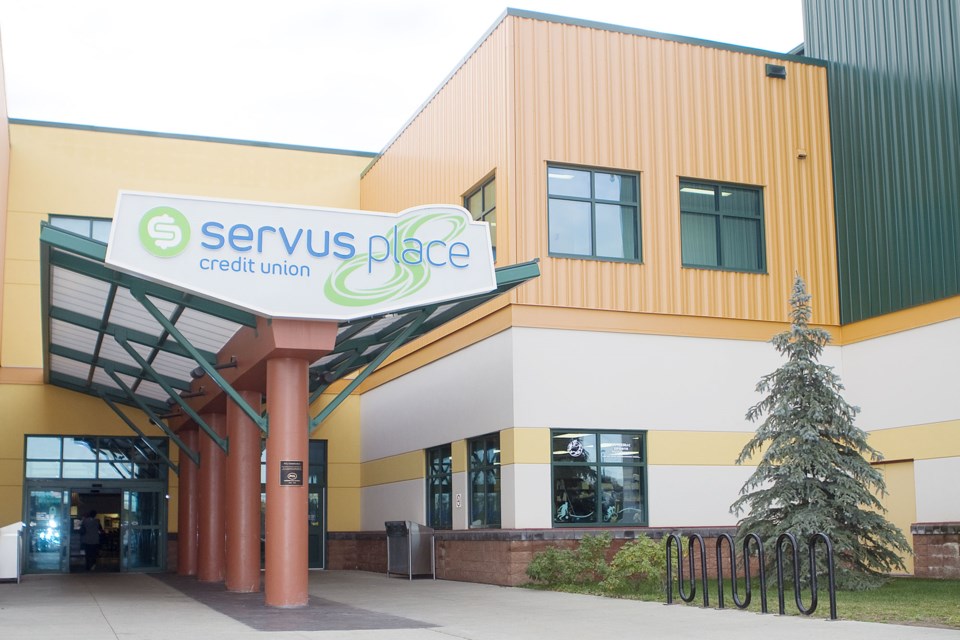Some regional mayors have expressed skepticism about St. Albert city council’s decision to increase recreation fees for non-residents, while others declined to comment.
St. Albert city council voted June 7 to increase recreation fees for non-residents from municipalities that don’t have a recreation-related agreement with the city. According to information compiled by city administration, the decision is the first of its kind in the region. The higher fees are scheduled to come into effect April 1, 2023.
The Town of Morinville and the City of Edmonton already have agreements — called inter-municipal collaboration frameworks (ICFs) — with St. Albert. The motion passed at council also invites remaining municipalities — such as Sturgeon County, Strathcona County, and Parkland County — to enter into similar agreements.
Mayors skeptical
City of Fort Saskatchewan Mayor Gale Katchur said she sees St. Albert’s decision acting as “a wedge” between municipalities.
“It really does set a precedent,” Katchur said. “It’s going to take more work, and really say that ‘you’re not welcome.’”
Katchur said Fort Saskatchewan has had conversations about increasing recreation fees for non-residents, but ultimately decided not to.
“The cost of building recreation facilities is very high, but at the end of the day, you have to think about who we’re serving,” Katchur said, noting that children and families often utilize the services most. “We just don’t want to go down that road.”
Town of Stony Plain Mayor Wiliam Choy noted he hasn’t been privy to conversations between St. Albert and Sturgeon County, which according to St. Albert city members have been inconclusive. Still, Choy said he doesn’t believe implementing increased fees is “necessarily the best route to go.”
“In terms of working together regionally, it’s always better to be at the table having those conversations than to lay the hammer down,” Choy said.
He noted there is “no invisible border” that separates one municipality from another, meaning sharing services is just a component of being neighbours.
“How much is it for a municipality to track those services?” Choy asked of the rates of non-resident users. “If you look at things like that, then you’re going tit for tat.
"Our residents will go to the municipalities that have the services they need to access. As elected officials, we have to acknowledge that and realize that it’s never been an even split.”
Stony Plain has an agreement with its Tri-Region partners Parkland County and Spruce Grove. Choy said the three municipalities work closely together on recreation and providing other services.
Other mayors decline to comment
Sturgeon County Mayor Alanna Hnatiw declined interview requests regarding St. Albert city council’s decision.
County spokesperson Jackie Sargent said in an email that the county is reviewing how the decision will impact “ongoing discussions between the two communities regarding recreation.”
In a previous statement to The Gazette before the motion passed, Hnatiw said “it is unfortunate that this tariff is now being considered.”
City of Spruce Grove Mayor Jeff Acker also declined an interview on the topic.
Jennifer Hetherington, director of corporate communications for Spruce Grove, said it would be “speculative” to comment at this point.
“We felt that it was a bit premature for us to be commenting on what this is when we haven’t had any of the conversations with St. Albert,” Hetherington said.
Mayor Allan Gamble of Parkland County and Mayor Rod Frank of Strathcona County also both declined an interview with The Gazette about the decision.
When the motion passed at council, St. Albert councillor Wes Brodhead said St. Albert’s decision could invite agreements with other municipalities.
“The idea here is we want to have a relationship with our neighbours,” Brodhead said. “To me, the best result at the end of the day is we all have agreed upon collaboration agreements between all our neighbouring municipalities, and we all are feeling comfortable about how that works.”
Katchur said she doesn’t agree that St. Albert’s decision will be effective in bolstering regional partnerships.
“I don’t see it as a tool to try and say, ‘Join up with us,’” Katchur said. “I just don’t see this being any kind of benefit at all. I think that goes totally against what we’ve been working towards.”




